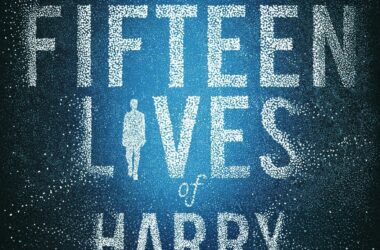NieR: Automata was a critically acclaimed action game with heavy RPG and story elements first released in 2017. Its success was quite surprising: it’s a sequel to a series of good-but-not-widely-loved games in NieR and previously Drakengard; the gameplay is a mishmash of action, adventure, and RPG with multiple systems intertwined, sometimes messily; the game required its players to beat and replay the game 5+ times to get its full story1. NieR: Automata: Long Story Short is a faithful novel adaption of the NieR: Automata plotline, in all its multi-character, multiple-timeline, convoluted glory.
Play the game; don’t bother with this book.
A lot of the time, when there’s crossover media—television, games, written fiction—around the same story, it originates with a book or a series of books. Turns out, literature is a pretty good starting point for storytelling, as the plot is the main selling point of the medium, and words can provide layers of nuance and detail that audio and visual interpretations can easily gloss over. Movie and TV adaptions of books tend to streamline storylines, cut away side plots that the screenwriters feel are extraneous, and can end up feeling like Cliff’s Notes. Adaptions that try to expand on the source material end up hit-or-miss; modern James Bonds movies that have moved beyond the books are at best uneven, while the second Lord of the Rings trilogy based on The Hobbit was widely derided for excessively stretching a compact story into 3 full-length features.
Long Story Short retells the central story of NieR: Automata chronologically, almost as a written transcription of a full playthrough. Immediately, this robs the experience of some of the best, literally award-winning aspects of the game: the soundtrack, the atmosphere, the variety in gameplay. The sound design, in particular, really meshes itself with the gameplay, providing some great moments in the game which gets almost trivialized in the literary retelling.
Then there’s the problem that as a game, NieR: Automata blends cutscenes that progress the storyline with the action-oriented gameplay that has the player traverse around the world, fighting enemies and upgrading weapons and completing sidequests. The game design allows for proper pacing across 30+ hours of gaming entertainment, something that gets lost in translation when truncated down to a 3 hour novel. Some of the epic boss fights from the game become little more than footnotes in the book, again robbing this version of the story of its sense of grandeur and impact.
But even if Long Story Short was able to pull out all the literary stops to recapture the same scale of the game, I suspect it’ll still end up falling short. Simply put, the standards of what constitutes as great storytelling in games is different than that of literature, and that becomes glaringly apparent here.
Some of the unexplained story beats, quirky characters, and absurd scenarios in NieR: Automata end up being acceptable, both because the bar for stories in games is substantially lower than that of books, but also because they were likely set up that way in service of another aspect of the game—an inside joke, a gameplay element, or even an affectation of its strange director. Even if parts of it makes little sense, within the context of a video game, the gameplay and cutscenes and soaring musical score prods the player along, never staying long enough to work through a weak story element. Within Long Story Short, however, every one of these flaws is laid bare, with little to distract from inconsistencies or deus ex machina devices and scenarios.
If there’s one positive to Long Story Short, it’s that the book reminded me of just how good NieR: Automata was and how much of its backstory could be expanded. Fortunately, there is at least one more book tie-in. NieR: Automata: Short Story Long is yet to be released (as of this writing), focusing on the history, background, and bits of backstory that make up the world of NieR without just retelling the story unmodified. In some ways, it’s a more traditional literary complement to its video game source material, but that story definitely needs more color and depth, so I’m hoping Short Story Long can deliver on some of those loose ends.
When I borrowed the game from my cousin, he mentioned getting the first ending, and then not bothering to put in any more hours to earn additional endings.↩



